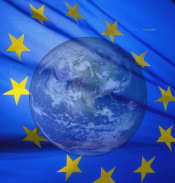 The E.U. has issued a Council Regulation establishing a community-wide framework for export controls on dual-use items, including controls on brokering. The regulation adopts the international controls required by the Wassenaar Arrangement, the Missile Technology Control Regime (MTCR), the Nuclear Suppliers’ Group (NSG), the Australia Group and the Chemical Weapons Convention (CWC) in a list set forth in Annex I. Export licenses will be required for exports out of the E.U. of items on that list and for certain intra-community exports of items listed on Annex I but also set forth in Annex IV.
The E.U. has issued a Council Regulation establishing a community-wide framework for export controls on dual-use items, including controls on brokering. The regulation adopts the international controls required by the Wassenaar Arrangement, the Missile Technology Control Regime (MTCR), the Nuclear Suppliers’ Group (NSG), the Australia Group and the Chemical Weapons Convention (CWC) in a list set forth in Annex I. Export licenses will be required for exports out of the E.U. of items on that list and for certain intra-community exports of items listed on Annex I but also set forth in Annex IV.
National authorities will be in charge of granting such license, which may include not only “individual” transaction-specific licenses but also global licenses and general licenses. Global licenses are given to one exporter and authorize the export of one category of items to multiple end-users and/or countries. General licenses are essentially license exemptions for certain products and certain destinations or end-users. The regulation also includes a “Community General Export Authorization” covering items listed in Annex II and which may exported to Australia, Canada, Japan, New Zealand, Norway, Switzerland, and the U.S.
Of particular interest are the brokering provisions. These provisions control the brokering of dual-use items which is a more expansive control than imposed by the United States which does not have laws or regulations relating to the brokerage of dual-use items. U.S. brokering regulations apply only to defense articles and services. The regulation’s definition of brokerage is also broader than the definition of brokering in the the International Traffic in Arms Regulations adopted by the U.S. Under the EU definition brokering is simply the purchase and sale, or the negotiation for the purchase and sale, of dual use items from one third country to another. It does not exclude, as does the U.S. definition, activities performed by employees or other parties not acting as agents. The EU regulation also covers uncompensated activity whereas the U.S. regulations require that the agent be compensated in order to fall within the definition.
 Permalink
Permalink
Copyright © 2009 Clif Burns. All Rights Reserved.
(No republication, syndication or use permitted without my consent.)

 Posted by
Posted by  Category:
Category: 

